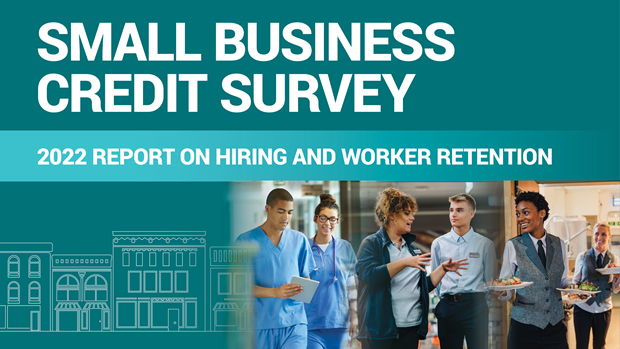From Philadelphia to Atlanta to Portland, communities rallied behind workers who couldn’t shift to remote work at the beginning of the COVID-19 pandemic. When 7 pm came around, neighbors stood on their front steps and leaned out windows to applaud health care workers. Handwritten signs supporting grocers, farmers, and first responders decorated windows and lawns. Drivers found snacks and thank-you notes on porches as thanks for delivering packages safely. Workers who could not work from home even got a new name: Essential.
As the pandemic marched on, life resumed some measures of normalcy. You may find yourself eating inside restaurants or shopping more frequently in stores. Once again, more of us are traveling to see family or friends, or to get away for a long-delayed vacation. You might also notice that fewer workers seem to be doing those “essential” jobs we celebrated not too long ago.
In July 2022, there were 11.2 million job openings and 5.7 million people actively looking for work. In addition, 4.2 million people quit or changed jobs.
More jobs than jobseekers
The question everyone is asking is: Where are all the workers?
Understanding the labor market is one of the most important things we do at the Fed. It reflects part of our dual mandate of price stability and maximum employment. So, we started having conversations about this situation with colleagues. We know that businesses are struggling to find and retain workers. It’s a sentiment echoed in the Fed’s Small Business Credit Survey, for example. We wondered why so many people are hesitant to return to work. What happened during the pandemic to prompt so many people to quit their jobs and look for new ones?
Typically, when the Fed wants to understand what’s going on in the economy, we look to data and we talk to people. We survey consumers and owners of small businesses. Our outreach teams connect with members of our communities to learn firsthand how they are experiencing the economy. For instance, they consult with members of the Fed’s advisory councils and talk to workforce development and staffing agencies, and local leaders, business owners, and bankers. They may also hold listening sessions. These activities are happening regularly, but they only tell us part of the story.
We need to include workers in these conversations, too.
Listening to workers themselves
This year Federal Reserve Banks across the country are hosting 20 virtual focus groups to hear firsthand from workers who are in, or have recently left, high-turnover jobs. We’re calling it the Worker Voices Project. It’s an opportunity to hear directly from workers at a time when our country is going through big changes in how we think about work. Once the focus groups are concluded, we will publish a report with our findings and more details. In the meantime, we can tell you about our approach and some preliminary things we’re learning.
Everyone participating in the focus groups meets at least one of the following qualifications. They have
- Recently looked for work
- Shifted where and how they work
- Participated in a workforce or training program recently
For these conversations, we’re focusing on workers who do not have a four-year college degree so we can understand their unique experiences as they tend to occupy some of those jobs we previously called “essential”. The stories they are sharing reveal some distinct themes about workers in 2022.
Prioritizing careers over ‘just a job’
Our focus groups confirm that work changed for these workers too. Many have articulated that the pandemic caused them to think about their priorities, their career paths, and how they are treated at work. Almost all of them said that the pandemic changed the way they think about what they want out of a job and how they spend their time away from their families and personal lives. Overwhelmingly, they are looking for a fulfilling and meaningful career, not just a job.
That said, they still face barriers such as
- Lack of affordable childcare
- High costs of commuting
- Skills mismatches
- Finding work that pays enough to make ends meet
Even with many employers raising wages and shifting hiring requirements to increase opportunities for workers, many workers are finding the current economy to be tough going.
The value of workers being heard
One clear thing has emerged: People want to work. What that looks like, however, has shifted.
Workers are telling us that they’re looking for more than a temporary influx of cash. They want jobs that provide both stability and mobility. They may not want to work where they were working before. Feeling valued by their employers is important. And they want to be heard.
Focus group participants have told us how meaningful it is to be able to share their voices and experiences. They will certainly help us have a more well-rounded view of what’s going on in the labor market. We have a number of focus groups yet to conduct. At the same time, research continues into other factors related to workers’ experiences.
We are no longer talking about workers without workers.
Workers. Job seekers. Career changers. They are all essential parts of our economy and we look forward to sharing some of their perspectives with you.












